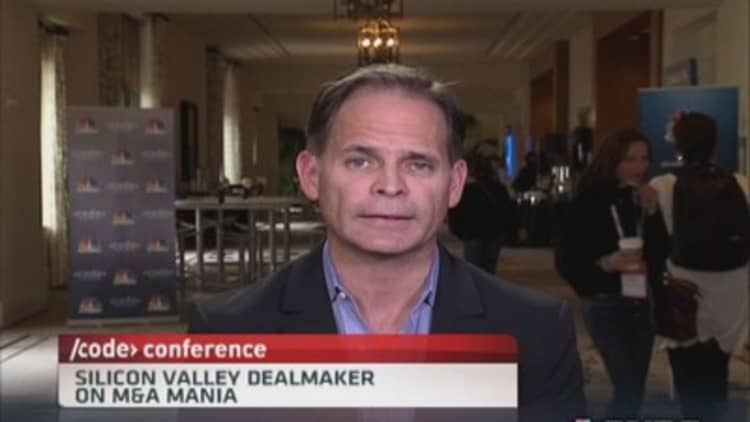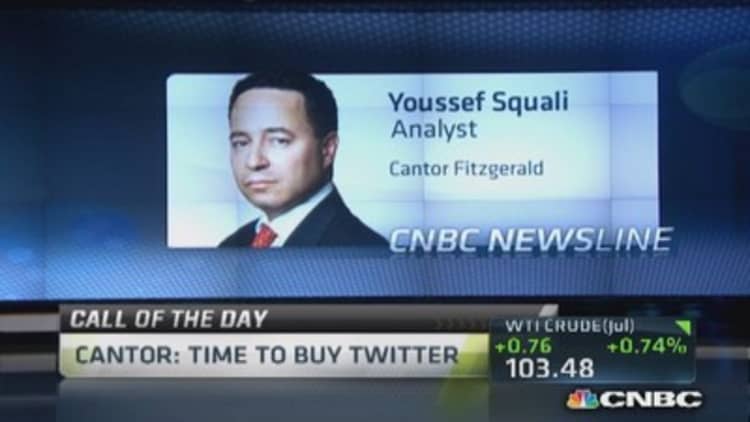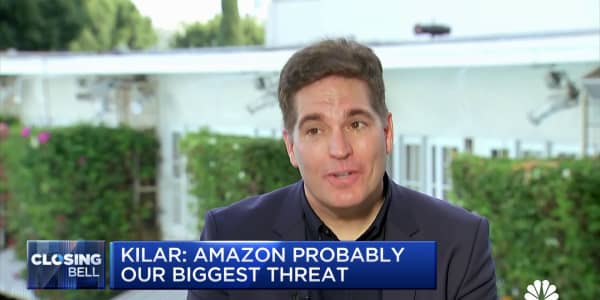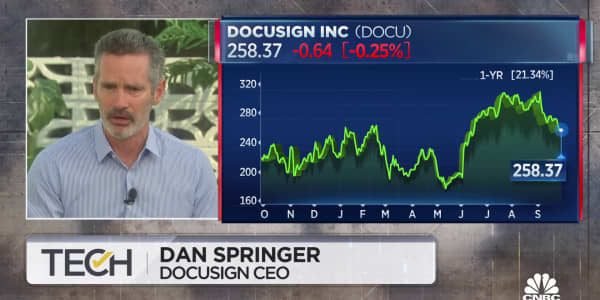
When looking at the valuations of billion-dollar tech start-ups, there's a little-heeded metric that makes a difference, Terence Kawaja of LUMA Partners said Thursday.
On CNBC's "Halftime Report," Kawaja cited Apple's acquisition of Beats Electronics for $3 billion.
"When you have $156 billion on your balance sheet, spending $3 [billion] for a get-cool transaction is kind of irrelevant," he said. "I think Facebook's acquisition of WhatsApp at $19 billion, where the majority of that was stock, is maybe something that should've turned more heads."

The difference, Kawaja added, was the valuation in relation to P/E.
"Whenever your price/earnings ratio exceeds 100, which is where Facebook's been trading recently, you should use that currency," he said. "If you think about normalized P/Es of in and around plus/minus 25, it's like everything is a massive tag sale with 75 percent off.
"So, you know, with companies that are in dynamic spaces, where things are changing rapidly, M&A is actually the answer. You can't get speed to market with your own development of applications and opportunities fast enough, so people are resorting to M&A."
Read MoreDropbox CEO: No IPO in the works
Apple's headline-grabbing deal helped push the total value of technology mergers and acquisitions to $102.5 billion in 2014 alone, the highest level since 2000, according to PrivCo.

Speaking from the Re/code Code Conference in Rancho Palos Verdes, California, Kawaja said that any similarities to the first-generation tech bubble was superficial.
"There's a lot of activity, but it feels different than back then," he said. "Valuations are full or frothy-ish, but I think there's a difference this time in the sense that there's real business models behind what these companies are doing, as opposed to what we saw 15 years ago, which was a lot of froth without any reality to it."
And no, there's no tech bubble, Kawaja added.
"I feel a little repetitive here, talking about, 'Are we in a bubble or not?' because that's the perennial question that keeps getting asked these days," he said. "And, by the way, it's healthy that it gets asked because that probably is what keeps us from being in a bubble."
Read MoreMarc Andreessen most excited about 3 tech trends
Kawaja also expanded on the class of startups labeled as "disruptors," saying that "the reality is a lot of what's going on now is more about enablement."
"In other words, if disruption is about shifting share of an existing spend of a pie, enablement is actually creating new spend where the software and technology solutions are providing something that's actually useful and enlarging the pie, which I think is a positive for the economy in general," he said.
—By CNBC's Bruno Navarro
Disclosure: NBC News group is a minority stakeholder in Re/code and has a content sharing partnership with the technology news website.




